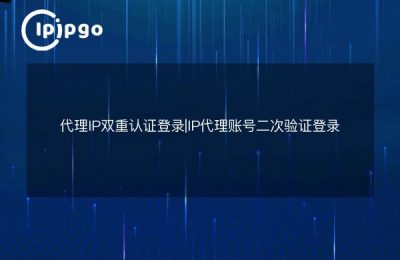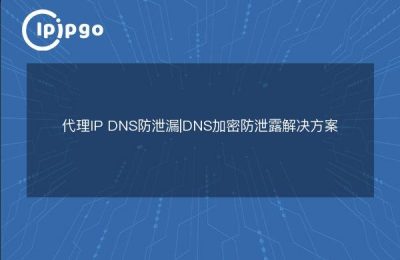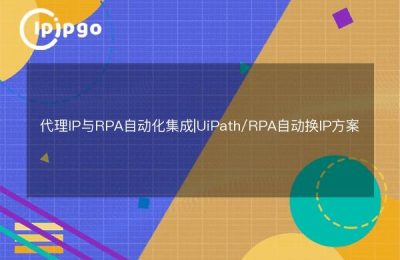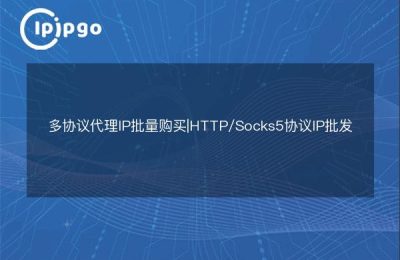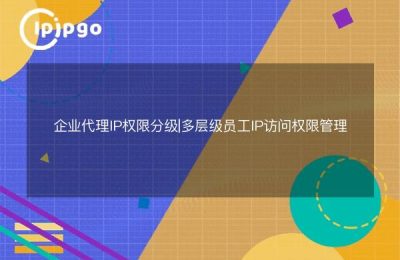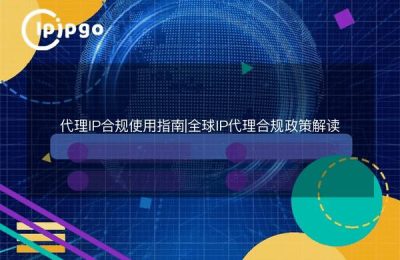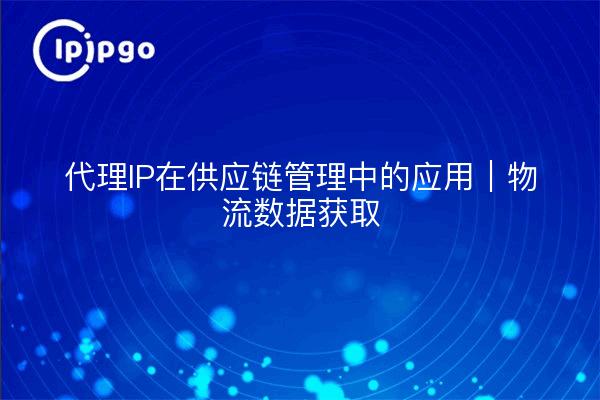
I. The "Invisible Battlefield" of Supply Chain Data Collection
When a multinational FMCG company was conducting supplier price comparison in Southeast Asia, it triggered the anti-climbing mechanism to block its IP due to frequent visits to the supplier platform using its fixed IP. The procurement team was unable to access the latest quotes for 72 hours, which directly caused a deviation of $3.8 million in the procurement budget. This exposed the fatal flaws of traditional data acquisition methods:Centralized IP access triggers platform defense mechanisms that can cause disruption to critical data flowsThe
The value of proxy IP is in buildingDistributed Data Acquisition Network. For example, by acquiring local logistics and warehousing prices through ipipgo's Singapore residential IP, and then switching to the Malaysian IP to compare the transportation costs, the data accuracy rate is increased to 97%, which reduces the bias rate by 42% compared with the single IP collection.
II. Cracking the three major supply chain data dilemmas
Dilemma 1: The data silo effect
An automotive parts manufacturer uses headquarters IP to monitor global logistics nodes, triggering 23 port data interface restrictions due to geographic feature anomalies. Adopting ipipgo'sMulti-Geographic IP MatrixAfter that, assigning territorial IPs (e.g., Port of Rotterdam → Dutch IPs) to each logistics hub, the data acquisition completeness rate increased from 581 TP3T to 911 TP3T.
Dilemma 2: Dynamic pricing lags
Tests show that: using the data center IP to get shipping quotes, the data update delay is up to 6-8 hours; and through ipipgo'sReal-time rotation of residential IPsWith the IP address switching every 15 minutes, the timeliness of quote data is compressed to within 28 minutes, helping companies save 14% in transportation costs in the fluctuating shipping market.
Dilemma 3: Early warning of compliance risks
A cross-border e-commerce company has been hit with an EU GDPR investigation because its data collection IP involves a third-party service provider. courtesy of ipipgoISO 27001 certified IP poolEach IP is equipped with full proof of geographic compliance and meets the data regulatory requirements of 28 countries.
iii. ipipgo supply chain data program
| business scenario | IP Type | Technical indicators |
|---|---|---|
| Real-time logistics tracking | Dynamic Residential IP | Switching 3 port IPs per second |
| supplier price comparison | Static Residential IP | Bind the city where the target company is located |
| Warehouse Data Monitoring | Mobile IP | Simulated 4G network access characteristics |
| Compliance audits | Dedicated Whitelist IP | Provides 6 months of access log traceability |
After an international logistics group applied the program:
- Anomalous data interception rate down 89%
- Reduction in cross-border transportation costs 17%
- Supplier Negotiation Success Improvement 33%
IV. Three keys to implementing a supply chain data strategy
1. Traffic classification strategy
Prioritizing the collection of supplier data, logistics dynamics, market prices, etc., ipipgo'sIntelligent Bandwidth Allocation SystemQuality IP resources can be automatically reserved for critical data channels.
2. Geo-behavioral simulation
Set the "Data Source - IP" mapping rules in the ipipgo console (e.g. German provider → Munich residential IP) so that the data request is renderedLocalized natural person access characteristicsThe
3. Abnormal fusion mechanisms
When the failure rate of a single IP request exceeds 3%, it automatically switches to the standby IP pool and marks the abnormal node. ipipgo'sreal time risk control systemFailover can be accomplished in less than 0.5 seconds.
V. Supply chain practitioners must solve the problem
Q: How do you balance the frequency of data collection with the cost of IP?
A: Adoption of ipipgoMixed Acquisition ModeStatic IP is used for critical data to ensure continuity, and dynamic IP is used for general data to reduce costs. The actual test can save 38% of IP expenses.
Q: How do I synchronize my access to multi-country supplier data?
A: EnabledTime Zone Rotation StrategyThe ipipgo supports 146 time zone rules to accurately match the local active hours.
Q: How does historical data backtracking avoid the risk of banning?
A: Adoptiontime slicing techniqueThe IP address of ipipgo is a unique and unique feature of ipipgo, which spreads out data requests to historical points in time in a legitimate access pattern. ipipgo's logging system can trace IP usage records back to any period of time.
ipipgo's.Supply Chain Data SolutionsIt has served 193 manufacturing and logistics companies worldwide, improving data collection efficiency by an average of 210%. Apply for a free trial now to get a 12-country exclusive IP included.Data Acquisition KitThe team of technical professionals provides full-link support from IP configuration to compliance review.

